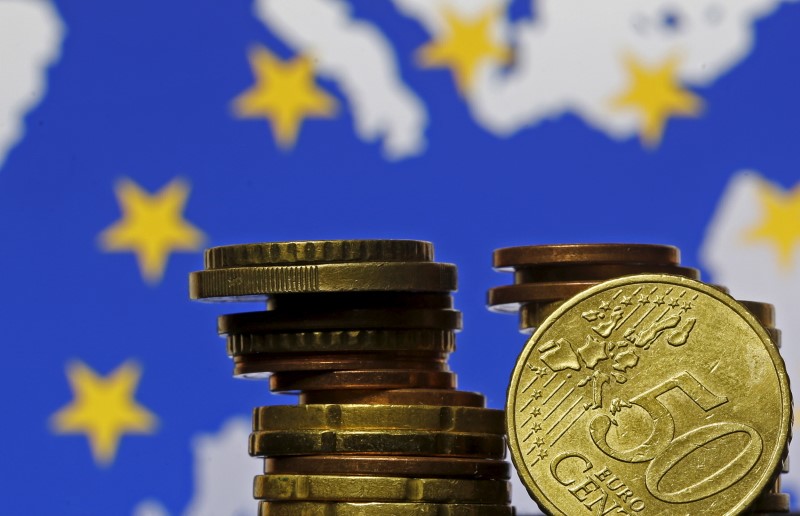By Jonathan Cable
LONDON, June 23 (Reuters) - Roaring euro zone business growth tailed off unexpectedly toward the end of the first half of 2017 following a sudden slowing in the pace of expansion by services firms, a survey showed on Friday.
But with inflation relatively resilient and overall growth still quite strong, pressure will likely be maintained on policymakers at the European Central Bank to pare back soon on their ultra-loose monetary policy.
Earlier this month, the ECB gave up its bias for more rate cuts in a small step towards normalisation.
IHS Markit's Flash Composite Purchasing Managers' Index for June fell to 55.7 from the 56.8 it registered in April and May, which was its highest since April 2011. A reading above 50 indicates growth.
A Reuters poll had predicted no change to the index, seen as a good guide to growth, and none of the economists polled had predicted such a big fall.
"At the moment I'm not too worried about it," said Chris Williamson, chief business economist at IHS Markit.
"We may be reaching the stage where growth has been strong for quite a few months and we are hitting a few ceilings in terms of degrees to which firms can expand capacity."
Williamson said the PMI pointed to second quarter GDP growth of 0.7 percent, faster than the 0.5 percent predicted in a Reuters poll earlier this month. The PMIs had correctly indicated a 0.6 percent expansion last quarter.
Economic data points to solid growth in the euro zone in the second quarter and inflation will hover near current levels in coming months, the ECB said in a regular economic bulletin on Thursday.
As they have done for the previous seven months, firms increased prices in June, albeit at a weaker pace as input cost pressures eased. The output prices index dipped to 51.8 from 52.4.
Firms operating in the bloc's dominant service industry did not perform as expected. The services PMI fell to 54.7 from 56.3, well below even the most pessimistic forecaster in a Reuters poll of over 40 economists.
"It's not really clear what that's about, there was no single cause we can pinpoint and I'm inclined to treat it just as some payback for the sheer strength of growth in recent months," Williamson said.
In one bright spot, the employment index held at May's 53.8.
It has only been higher than that once since early 2008, in March of this year.
Factories had a better month than predicted. The manufacturing PMI climbed to a more than six-year high of 57.3 from 57.0. The Reuters poll suggested it would dip to 56.8.
An index measuring output nudged up to 58.5 from 58.3, its highest since April 2011.
Implying the momentum would continue into July, new orders surged and factories ran down stocks of finished goods at the fastest rate for nine months. The related subindex sank to 47.9 from 49.1.
